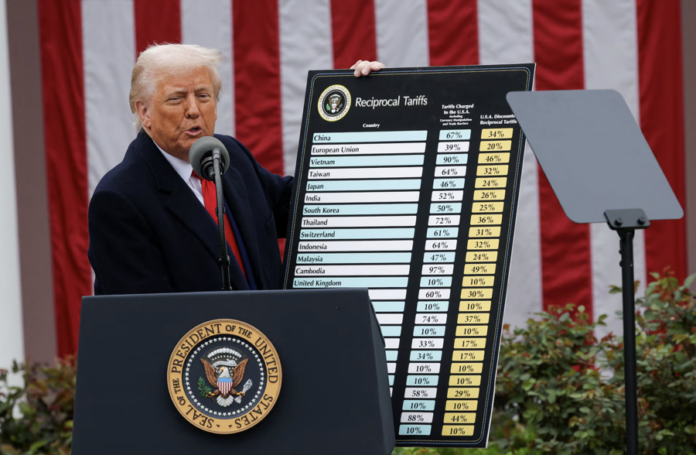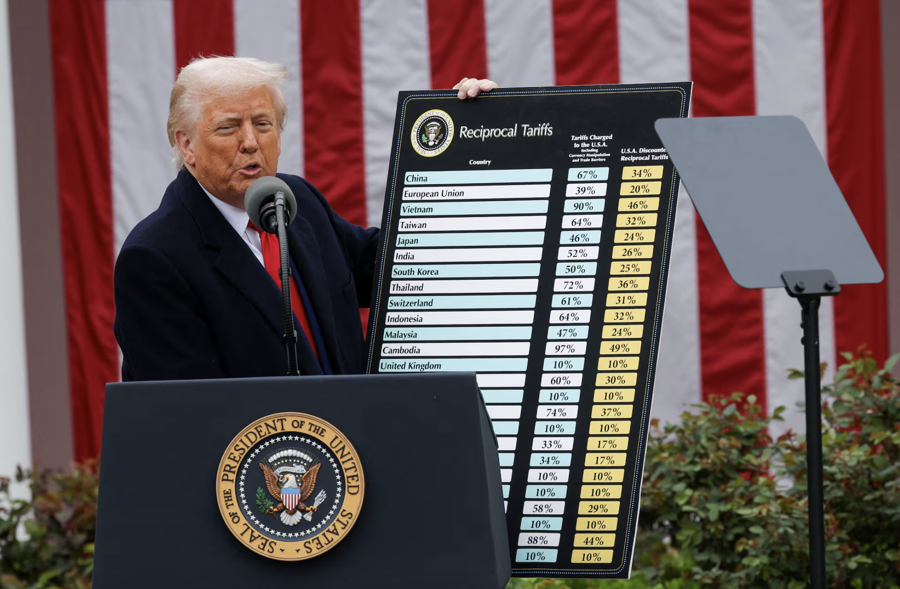Seoul and Washington have agreed to work towards a deal to lift tariffs imposed by President Donald Trump on South Korean goods before a July deadline for retaliatory taxes – so said South Korean officials after the first round of trade talks.
US Treasury Secretary Scott Bessent described the meeting on April 24 as “very successful.” He told reporters, “We may be moving faster than I thought, and we will discuss technical terms as early as next week.”
The first round of US-South Korea trade talks was led by Secretary Bessent, US Trade Representative Jamieson Greer, and South Korea’s Finance Minister Choi Sang-mok and Minister of Industry, Anh Duk-geun.
While both sides remained optimistic after the meeting, no specific details were disclosed regarding potential areas of agreement. However, South Korea, in a statement, mentioned proposing to the US the removal of retaliatory and sectoral tariffs and suggested cooperation in shipbuilding and energy, as well as addressing trade imbalances.
“In the meeting, the two sides reached a general agreement on a framework for future discussions,” said Ahn after the initial round of talks. “We also agreed to hold working-level meetings next week to determine the scope and structure of the following high-level negotiations, aiming for a deal before July 8.”
Minister Choi shared that following the meetings in the US, the next round of negotiations would take place in South Korea on May 15-16, with Greer leading the US delegation. He added that the discussions would focus on four main topics: tariffs and non-tariff barriers, economic security, investment cooperation, and monetary policy.
According to Reuters, the first round of US-South Korea trade talks occurred while Bessent and other senior officials of the Trump administration were busy meeting with officials from several other countries to discuss tariff issues on the sidelines of the annual spring meetings of the International Monetary Fund (IMF) and the World Bank (WB) in Washington.
South Korea, which faces 25% retaliatory tariffs imposed by Trump, is one of the first countries to initiate trade negotiations with the US. Japan, another close US ally in Asia, began talks last week and held a second round of negotiations on April 24.
Minister Choi mentioned that the South Korean side particularly focused on the automotive sector, which has been most negatively impacted by US tariffs. He also stated that separate discussions on monetary policy would be held between the South Korean and US finance ministries.
Choi told Korean reporters that there was no mention of defense cost-sharing in this round of talks. Previously, Trump had suggested that the cost of maintaining US troops in South Korea would be part of trade negotiations with South Korea. However, South Korea’s foreign minister clarified that defense costs are a separate issue and would not be included in trade talks.
Ahn stated that there was no discussion about renegotiating the bilateral free trade agreement signed between the two countries in 2007.
The South Korean side also requested that Washington understand that the bilateral trade negotiation process could be influenced by the “political schedule”—possibly alluding to the upcoming snap election on June 3 to elect a new president after Yoon Suk Yeol’s impeachment.
Experts believe that South Korea is unlikely to make any firm commitments on energy projects and defense costs while the country is under interim presidential leadership. According to sources, the US plans to host a summit on energy security in Alaska in June, where it hopes for commitments from Japanese and South Korean officials on an LNG project in the state, as revealed by Reuters on April 24.
















